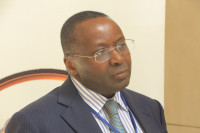Economics & Global Development
Behavioral Economics & Decision Sciences
Political Economy & Governance
Post-Doctoral Fellowships
France
2014.08.31
The (dis)value of risks and chances
In both philosophy and economics, the prevailing belief is that rational agents always choose the option they expect to have the best consequences. However, this standard view has faced challenges when it comes to prescribing and predicting decision-making under uncertainty. It has been assumed without critical discussion that chances and risks are only of instrumental importance, but Dr. H. Orri Steffánson’s research project aims to challenge this assumption.
Dr. Steffánson’s main objective is to empirically and normatively examine the idea that chances and risks are intrinsically good or bad, rather than being merely of instrumental importance. By exploring this thesis, he aims to provide a better understanding of individual and collective behavior towards uncertainty, dissolve certain paradoxes in decision sciences, and offer clear-cut answers to difficult questions about public policy-making under uncertainty.
His project is innovative in its systematic attempt to make sense of the idea that risk itself is most important in assessing outcomes. This may lead to changes in decision theory, placing chance and risk at the heart of the ultimate decision-making process. The impact of Dr. Steffánson’s research also extends to public policy-making related to evaluating risks. For example, it could influence the understanding that risk is bad even if the bad outcome does not materialize, and help determine how and why risk is bad. Consider a scenario where resources are limited, and decisions need to be made about allocating care to patients based on the increase in their survival chances. The research thus aims to shed light on such challenging decisions and provide valuable insights for policymakers.

H. Orri
STEFÁNSSON
Institution
Fondation Maison des Sciences de l'Homme
Country
France
Nationality
Icelander
Related articles
Economics & Global Development
Climate Change
Finance, Investment & Risk Management
Insurance & Risk Management
Sustainable Finance
Climate Adaptation & Resilience
Greenhouse Gases Emissions
AXA Project
Driving Innovation in Economic Policy Partnership Extension
In 2024, the AXA Research Fund and the Centre for Economic Policy Research (CEPR) renewed their strategic partnership aimed at... Read more
Centre for Economic Policy Research
(CEPR)
Centre for Economic Policy Research
Economics & Global Development
Finance, Investment & Risk Management
Insurance & Risk Management
Sustainable Finance
Economic Loss & Disaster Risk Financing
Political Economy & Governance
AXA Project
Driving Innovation in Economic Policy
In October 2021, the AXA Research Fund and the Centre for Economic Policy Research (CEPR) embarked on a three-year strategic... Read more
Centre for Economic Policy Research
(CEPR)

